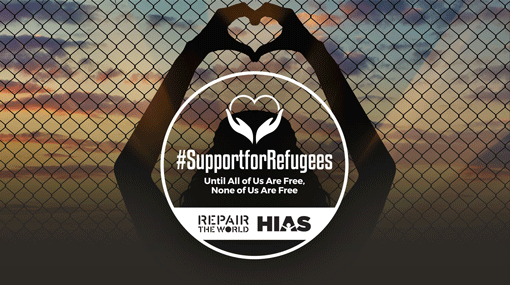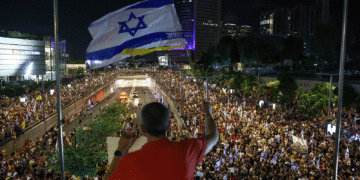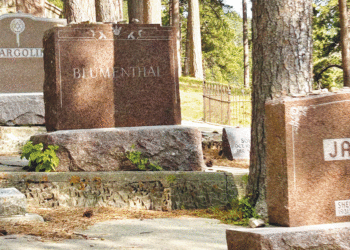You shall not oppress a stranger, for you know the feelings of a stranger, having yourselves been strangers in the land of Egypt. — Exodus 23:9
In his November 2014 speech on reforming this nation’s broken immigration system, President Barack Obama paraphrased the preceding verse from Exodus, and said:
“My fellow Americans, we are and always will be a nation of immigrants. We were strangers once, too. And whether our forebearers were strangers who crossed the Atlantic, or the Pacific or the Rio Grande, we are here only because this country welcomed them in and taught them that to be an American is about something more than what we look like or what our last names are, or how we worship. What makes us Americans is our shared commitment to an ideal, that all of us are created equal, and all of us have the chance to make of our lives what we will. That’s the country our parents and grandparents and generations before them built for us. That’s the tradition we must uphold. That’s the legacy we must leave for those who are yet to come.”
The topic of immigration is central to the Exodus story, the story of the birth of the Jewish people that we relive in our Pesach seders. This story of oppression, liberation, wandering and arrival in the Promised Land has inspired varied peoples in far-flung lands over the generations.
In past editorials, I’ve tried to make the case to Jewish World readers — who are mainly of the first and second generations of their families born in the United States — that our people’s experience of savage repression and dispossession should lead us to feel rachmones, compassion, for those who have recently fled their war-ravaged homelands to seek refuge on these shores.

The Passover narrative is more topical than ever, in view of the refugee crisis that has impacted Europe. War refugees from Syria, Iraq, Afghanistan and dozens of other countries have made perilous journeys to find safety in Europe. Many of the European nations have taken in hundreds of thousands of refugees; however, controversy is rising over the influx of Muslim refugees, especially after the recent terrorist attacks in France and Belgium.
About 20 years ago, 26 European countries established the Schengen Area, a sort of United States of Europe, which allows travel without passports and border controls. But now fences, barbed wire and border police block the formerly open borders of the Schengen Area. In March, the European Union and Turkey brokered a deal to return migrants who cross the Aegean Sea to Greece, if they don’t apply or meet criteria for political asylum.
And as is happening in Europe, demagogic politicians in the U.S. are scapegoating immigrants and war refugees to gain advantage in an election year. Notably, Donald Trump, the leading GOP presidential contender, has called for a ban on Muslims entering this country, and for the mass deportation of undocumented immigrants from Mexico and Latin America.
In his benighted forays into foreign policy, Trump also has declared that he would reinstate waterboarding of suspected terrorists, and practices that are “so much worse.” Even though torture is banned by international agreements and treaties, and is thus criminalized under U.S. law, Trump claims that “torture works.”
With many refugees fleeing totalitarian regimes that torture their citizens, it is totally unfathomable that voters in this country would support a politician who openly declares his intention to institute a lawless regime of torture. It defies any claim this country can make to morality.
On a more positive note, HIAS (which used to stand for Hebrew Immigrant Aid Society) and Repair the World have launched a Passover initative, the #SupportforRefugees campaign, April 15-30, “to build awareness, foster dialogue, and inspire action to provide sorely needed support to newly resettled refugees.”
As part of the #SupportforRefugees campaign, Repair the World’s ongoing Turn The Tables initiative (turn-the-tables.org) offers resources to facilitate dialogue on the refugee issue within a Jewish framework during a seder or Shabbat dinner. And HIAS has a supplement that can be downloaded from its website (hias.org/passover2016), and used to enhance the meaningfulness of a Passover seder.
“We know so many young adults who want to publicly offer their support and find meaningful opportunities to work with refugees as they finish one part of their difficult journey and begin their transition into local communities,” said David Eisner, president and CEO of Repair the World, in a press release sent to the Jewish World. “Together with HIAS, we can connect young adults to service opportunities with excellent local organizations that can really use the help in supporting refugees when they arrive. And, we cannot imagine a better time to launch this work than this holiday, as we reflect on the Passover story of liberation and the human struggle for freedom.”
Rabbi Jennie Rosenn, vice president for community engagement at HIAS, added: “In a few days we will gather to tell — and even relive — the story of our people’s escape from persecution and our wandering in the desert without a home. The parallels to today’s global refugee crisis are inescapable. We hope that the conversations that begin around the table will echo deeply in our souls and not only raise awareness, but also call today’s emerging Jewish leaders to action. We are a refugee people, and we have a critical role to play in the future of today’s refugees.”
The editors and staff of the American Jewish World wish all of our readers a happy and meaningful Passover.
— Mordecai Specktor / editor@ajwnews.com
(American Jewish World, 4.22.16)




















